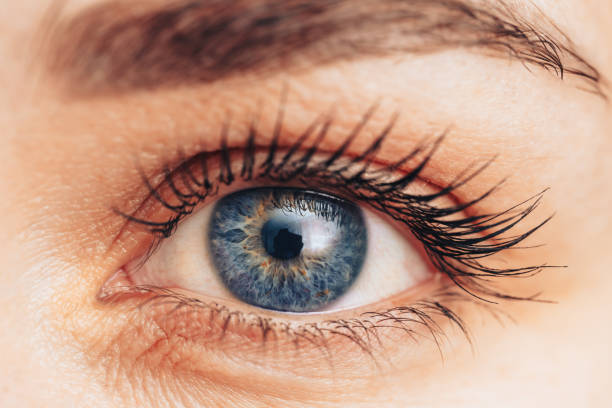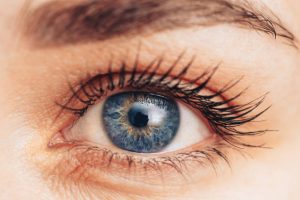Protect your eyes daily! Small habits can make a substantial difference to eye health. Here are a few ideas to get you started on that journey.
Eyes are invaluable, yet we often take them for granted. But vision issues can seriously hamper life over time – and not just with regard to glasses or contacts being necessary. In fact, vision loss has been linked with lower quality of life and even depression, diabetes, and other health conditions according to research from the Centers for Disease Control and Prevention.
Implementing simple daily habits can help improve eye health and reduce risks in the future.
Wearing sunglasses:
Attaining UV rays may cause irreparable eye damage over time. Wearing sunglasses to block these harmful rays and decrease risk factors for cataracts, sunburns, eye cancer and growths around your eye are among those recommended by the American Academy of Ophthalmology. Polarized glasses with smoke or gray lenses provide optimal protection and also help minimize glare from direct sunlight.
Screen breaks:
Take regular screen breaks Prolonged screen use can lead to dry eyes, neck and shoulder discomfort, blurred vision, headaches and digital eye strain (CVS). The American Optometric Association suggests using the 20-20-20 rule as a preventative measure: every 20 minutes look away for 20 seconds at something at least 20 feet away and every 20 minutes return back for at least another 20.
Book Breaks:
Take Book Breaks Screen time isn’t the only activity that strains your eyes; reading too can strain them too, especially since we tend to hold it up close for long periods while we read. Both activities may contribute to nearsightedness (myopia), where distant objects appear blurry while nearby things remain clear. Just as with screen breaks, take 20-20-20 breaks from books as well. Set an alarm if necessary so you don’t miss your break of 20 minutes!
Regular exercise can have many eye health advantages, according to the AAO, such as supporting healthy blood vessels and decreasing your risk of glaucoma and diabetic retinopathy. According to CDC recommendations, at least 150 minutes of moderate aerobic activity each week as well as two strength training days should be sufficient; alternatively, you could try eye exercises while sitting at your desk to alleviate tension or strain in your eyes.
Spend Time Outdoors
Both children and adults need to spend time outside regularly – even if you get your recommended exercise indoors. Studies show that children who spend time outdoors have lower risks of nearsightedness as adolescents and adults; therefore playing at local playgrounds or walking through wooded paths together or simply playing in your backyard is an ideal way for the whole family to stay healthy and active – don’t forget your sunglasses!
Don’t Smoke
Smoking cigarettes is well-known to be harmful, and can significantly increase your risk of eye diseases like cataracts and age-related macular degeneration (AMD), according to research from the Food and Drug Administration. According to FDA estimates, smokers have two or three times greater chances of cataract formation compared with nonsmokers while up to four times increased AMD risk; further research may reveal whether smoking cigarettes cause other eye issues like glaucoma, Graves’ eye disease thyroid eye disease as well as encourage diabetic retinopathy progression or progression; in order to improve your own health you should create an exit strategy plan as soon as possible – building an exit strategy will ensure success and creates success when exit plans come together.
Maintain a balanced diet
Eating foods rich in vitamins A, C, and E as well as beta-carotene, omega-3 fatty acids, lutein zeaxanthin, and zinc will contribute to improved eye health by supporting cell growth, decreasing inflammation in eye tissues and protecting against free radical damage to eyes.
To ensure you’re providing your eyes with enough nutrients, include these foods in your daily diet – as recommended by AAO:
Vitamin A and beta-carotene:
Apricots, carrots, cantaloupe, sweet potatoes, red peppers, ricotta cheese and mango for optimal vitamin A/beta carotene content, along with sweet potatoes; cantaloupe; sweet potatoes; red peppers, ricotta cheese and mango are great sources. For vitamin C: Grapefruits, oranges, lemons tangerines peach strawberries tomatoes red bell peppers; Grapefruit, almonds peanut butter wheat germ /sunseeds
and Omega 3s such as Halibuts/Sardines Salmon Tuna/Trout are rich sources.
Lutein and Zeaxanthin can be found in collards, broccoli, eggs, peas, kale, spinach, romaine lettuce and turnip greens; while zinc can be found in lima beans, kidney beans, black-eyed peas, lean red meats oysters fortified cereals poultry
Avoid Rubbing Eyes
Rubbing your eyes habitually could lead to eye damage or infections. Dry eyes and eye strain may prompt you to rub too hard, leading to reduced or blurry vision, headaches, inflammation and light sensitivity issues. In addition to that, bacteria or viruses on your fingers or hands could spread conjunctivitis (also known as pink eye). Instead of rubbing, use eye drops or saline drops instead for cleaner eyes while keeping them moist – and find something else to occupy your hands until breaking this bad habit of yours!
Before touching your face or eyes and handling contact lenses, always wash your hands. With nearly 45 million Americans wearing contact lenses and 1 in 3 having complications due to them (with 1 out of every 5 infections causing corneal damage), proper hygiene must always come first when handling these products.
As soon as you touch an object after unwittingly being exposed to germs from another, there’s no telling which species might be on them and causing illness – nor where those germs might come from! Washing hands frequently has been proven to decrease respiratory illness risk by up to 21% and diarrheal illness risk by 40% according to CDC estimates.
After a long day, it can be easy to forget to remove eye makeup before bed. But doing so can benefit both your eye health and reduce your risk of blepharitis or eyelid inflammation according to Optometrists Network.
Adopting good makeup practices that protect both your eyes and skin is also key, such as using products specifically made for eyes, replacing makeup often after infection, not applying eye shadow in the inner lids, never sharing it with anyone else, and cleaning brushes or sponges used for application on a regular basis.
This information should only be used for educational and informational purposes and should not be taken as medical or healthcare advice. Always seek the advice of a physician or qualified health provider should any queries regarding medical conditions or healthcare be raised.




